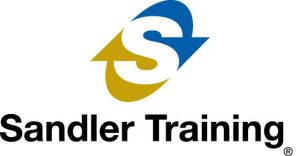Business Today
Conflict. We all deal with it! When it comes to resolving conflict, the first place we must look is ourselves because that’s all we have control over.
While work isn’t the only place we deal with conflict, and our reaction to it, a past work situation I dealt with came to mind. When I was 28 years old, I was promoted well beyond my abilities to manage a team with more in common with my parents than with me! One thing I heard over and over from that team, and my own manager, when she gave me feedback was that I was clearly comfortable with conflict.
She didn’t mean that as a compliment. I was very direct- at times blunt- in how I communicated with the team and it was causing conflict and problems. Some of my team didn’t feel comfortable talking about difficult situations with me. I wanted to lead the team well and drive great results for all of us, but as a new manager, I had no idea what the root of the problem was or how to begin to fix it. Frameworks and models can help us understand the root of our problems so we can change. The model of human behavior called Transactional Analysis developed by Dr. Eric Berne in the 1950s has helped me understand where my behavior’s coming from and how to change. The ego states aren’t personality, they are postures we operate from.
1. The Parent Ego State: From birth to about 6 years old we recorded the messages received from a parent, older siblings, teachers, and more. Those experiences developed the two segments of the Parent Ego State:
2. The Nurturing Parent Ego State: This is the voice that’s encouraging, think of a parent with a warm tone of voice, holding their arms out and cheering a child on to their first steps.
3. The Critical Parent Ego State: This is correction; the judgments we received from parents and parental figures at that age. For example, the messages to not touch the hot cookie sheet, or not to run into the street. Any messages that come from us that are judgmental or start with “should” are coming from this state.
Here’s what I didn’t realize as a new manager. I was almost always operating out of my Critical Parent Ego State. The one that focused on correcting others, telling them what to do to fix problems. What happens when people are talked to in that judging tone? They don’t like it! This awareness helped me see where I was allowing my “Critical Parent” to influence my communication and I learned how to change to the “Adult” ego state. Even though it’s uncomfortable to change it’s helped me work more effectively with others. Next month we’re going to talk more about the other two Ego States (adult and child) and how understanding those egos started can help us change and get past conflict to better outcomes.
205-306-8164, www.ksainc.sandler.com
Sizemore lives in Hoover, Ala. and is a Consultant, Coach, Trainer and Speaker focused on the subconscious psychology of Human Interaction and Motivation. Her firm specializes in Sales, Management and Leadership Development for Proactive Business Growth.








